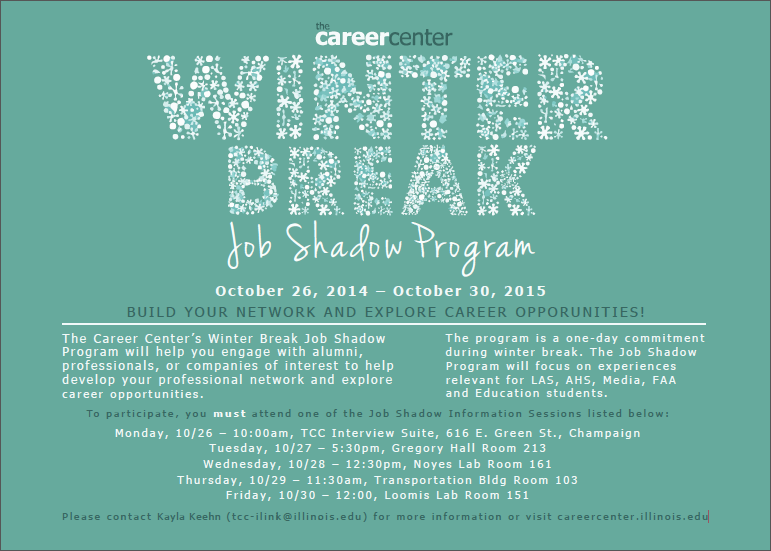by Valerie O’Brien
Has the buzz about business and tech industries needing humanities majors led you to consider a career in the private sector? Are you wondering how to supplement your rich humanities background (and entries on your résumé) with some business experience before you graduate? You might consider joining Illinois Business Consulting, a time-intensive but professionally rewarding organization that offers you hands-on consulting experience. Here’s what we learned from Andrew Allen, Director of Illinois Business Consulting, when he spoke as a part of the Engl 199: Career Planning for Humanities
Majors lecture series this week.
What is Illinois Business Consulting (IBC)?
IBC is an extracurricular opportunity open to undergraduate and graduate students in all  majors that gives participating students the opportunity to practice business consulting as it’s done
majors that gives participating students the opportunity to practice business consulting as it’s done
in the real world. Students accepted to the program work on interdisciplinary teams to develop a consulting strategy in response to a business problem posed by a real-world for-profit or non-profit organization. Teams will ultimately present their work to that organization and receive valuable feedback from clients on their project.
Ok – but what is consulting?
Business consulting firms develop solutions to a number of problems businesses face, primarily related to either increasing revenues or reducing costs. IBC specializes in strategy consulting, so the kinds of problems consultants might be asked to address could include how to get more of a particular demographic to purchase a product or how to help a business offer a more competitive product more generally (e.g., how a small ice cream manufacturer can sell more of its product in a market dominated by very large businesses).
What are the benefits of participating in IBC?
Some of the benefits of joining IBC include the following:
- Long-term interdisciplinary collaboration with your consulting team
- Experience with real-world problem-solving
- Enhancement of communication and public-speaking skills through work with both clients and team members
- Development of project management skills
- Firsthand experience with career opportunities in consulting and other fields of business
What can Humanities majors bring to consulting?
English and other Humanities majors have a lot to offer the business world! Skills in the following areas, which you consistently develop in your humanities courses, are just some of those that will apply to work in consulting:
- Analysis
- Problem-solving
- Research
- Written and oral communication
- Project management
- Creativity
How can you apply to join IBC?
IBC accepts applications at the beginning of each semester. The final deadline to apply for Spring 2016 is 11:59 pm on January 8, 2016, but applications are open now, so you can submit an application anytime before then. For more information, visit http://www.ibc.illinois.edu/Students/How-to-Apply.
The application process will involve three stages: first, the submission of the online application (with essay questions) and a résumé; second, a behavioral interview; and third, a case interview in which you’ll be asked to practice solving problems like those you might encounter in consulting cases.
IBC’s application process is selective, so you’ll want to prepare! You can learn more about case interviews by visiting http://acethecase.com or checking out David Ohrvall’s book Crack the Case System (2011). You might also look into U of I’s own student consulting group, OTCR Consulting, which provides a list of additional resources for case interviews here (http://otcr.illinois.edu/case_interview_resources.php).
If you’d like to learn more about intersections between a humanities background and careers in business, be sure to attend next week’s talk with Tony Pomonis on how a humanities degree will help you run your own business– Wednesday, Nov. 11, 4 – 5pm in 119 English Building.





